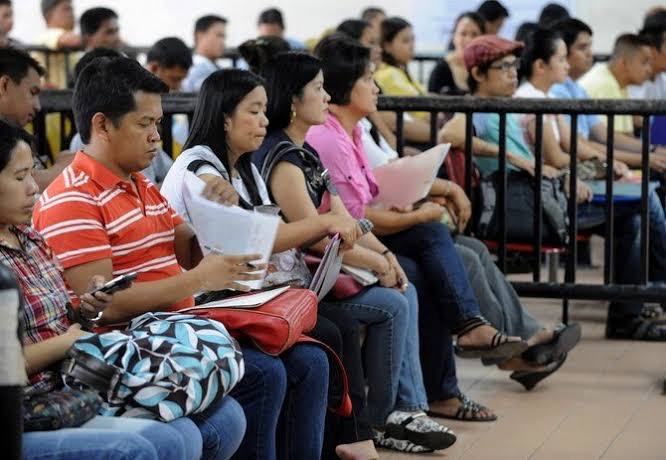We have to complain and make criticism, we don’t deserve “Pwede na yan” attitude and “suportahan mo na lang” even if pangit ang services that we get. This is the reason why we are not getting any improvements.
We Filipinos take great pride in our reputation for friendliness, resilience, and solidarity. We are proud of our resilience and our ability to find happiness in the face of adversity. This is a great quality to have, but it might make us too comfortable to do anything about problems that are affecting us or our communities. This is why I think it’s important for Filipinos to voice their concerns as well. In this piece, I’ll elaborate on this concept and talk about the justifications for raising our voices.

Dissatisfaction is a way to provide feedback.
To begin, criticism is a type of response. Complaints are a form of constructive criticism that might help improve a situation. Many problems in our modern world are not being given the attention they deserve. Problems exist in public transit, for instance, due to insufficient infrastructure, poor maintenance, and inadequate safety precautions. As a result, commuters may experience discomfort, difficulty, or even danger. When we voice our displeasure about these problems to the appropriate authorities and the general public, we help bring about change.
Complaints about healthcare and education can also help shape those sectors for the better. For example, if we voice our dissatisfaction with healthcare providers and the government, we may be able to persuade them to upgrade their buildings, their staff’s education, and their machinery. When people complain about the standard of education and the lack of resources, the government may decide to increase spending on schools and upgrade their infrastructure and supplies.
Grumbling can motivate change.
Second, voicing discontent might motivate change. Complaining out loud brings attention to an issue and helps others become more aware of it. This may inspire additional people to take action or think of solutions. It’s unlikely that much will be done about ongoing issues if people don’t speak up about them. Complaining has the potential to be a powerful force for positive social change.
“Binabaha na naka ngiti pa” We should complain and not just smile. THings will not improve if we don’t assess our right to give complaints
The #MeToo movement, which began in the United States, is only one example where victims’ voices were heard and action was taken. As a result, more people became aware of the problem and many governments adopted new measures to combat sexual harassment and assault. Women in the Philippines used the hashtag #BabaeAko to talk about their experiences with misogyny and sexism, which helped the movement grow in 2018. Because of this, people started talking about these problems seriously.
Additionally, complaints can inspire new efforts to solve a problem. For instance, due to public outcry, NGOs and concerned citizens have launched programs to fill the educational gap for kids in rural areas by offering them free classes and financial aid. Complaining may be a powerful tool for effecting positive change and getting things done.
We can better assert our rights if we complain.
Complaining also helps us stand up for ourselves and our rights. We, the Filipino people, deserve a society that is both secure and fair. When we voice our displeasure about something, we are exercising our freedom to advocate for a solution. To make sure our wants and concerns are heard, it is crucial that we use this right. Complaining can serve as a form of self-defense and assertiveness.
We can, for instance, lodge complaints when we are denied our right to a non-polluted environment. In this way, we may force our government to uphold environmental legislation. We also have the right to a safe and healthy workplace, and the right to lodge complaints when those needs aren’t being met. By speaking up, we can force change at work and guarantee that our rights are respected.
Grumbling can be a catalyst for change.
Complaining, moreover, can be a path to self-determination. We gain a sense of agency and mastery over our life when we speak up about the things that matter to us. It may also inspire others to follow suit. A culture of complaint can lead to more people speaking up and taking initiative to improve their communities.
Complaining, furthermore, can motivate us to take greater civic responsibility. Complaining might motivate us to take action and get more involved in our communities rather than simply accepting the current quo. For instance, if we protest that there aren’t enough lighting, we can be inspired to start a neighborhood watch group or collaborate with city officials to get some installed. Complaining has the potential to make us better, more engaged citizens.
Complaining, though, should not be about doing nothing but airing our grievances. It needs to be done in a good way, with the goal of affecting change. We need to go to the bottom of the problem and figure out how to fix it, rather than just whining about it.
Just recently, many people are getting their professional driver’s license printed in paper yet many Filipinos find it funny. is this really funny?
Complaints should be made in a kind and helpful way. It’s vital that we voice our worries without being hostile or insulting. We also need to be willing to hear the other side out and try to compromise.
In conclusion, the Filipino people should be recognized for more than only their hardiness and generosity. We need to be known as a people that aren’t afraid to raise their voices and share their worries. Complaining has the potential to motivate positive change, help us exercise our rights, and motivate us to be more engaged citizens. We can make a better world for ourselves and our children if we learn to complain in a productive and civilized way. Let us not be scared to voice our displeasure when appropriate. Our collective efforts will bear fruit if we speak up.
So go, make complaints, don’t just smile and let your voice be heard because as individuals who work hard to earn a living and contribute to society, we certainly do not deserve to be subjected to bad services that fail to meet our expectations, undermine our rights, and leave us feeling frustrated and disempowered.





